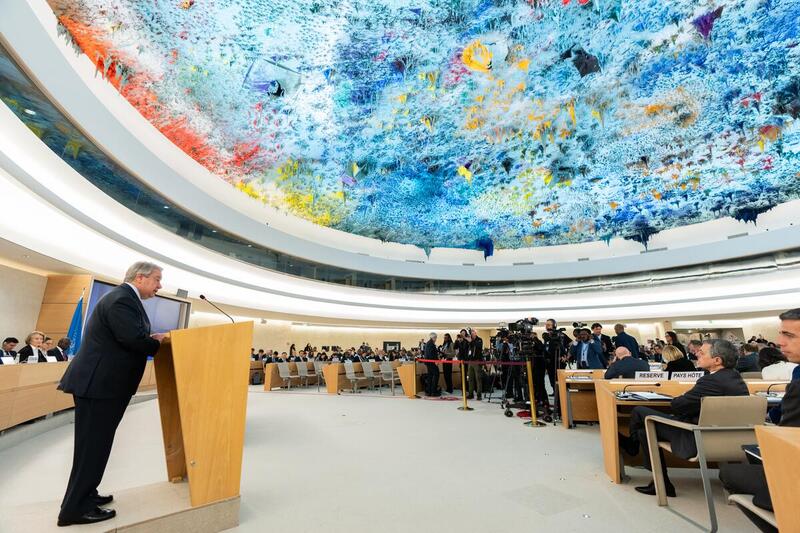United Nations Human Rights Council: the 60th regular session was held from September 8 to October 8 2025

Throughout the autumn period, the Human Rights Council held its 60th session from the 8th of September to the 8th of September in Geneva, Switzerland. The session addressed issues such as the right to food and adequate security, the rights of indigenous peoples. It included discussions on combating discrimination, violence, and harmful practices against intersex persons, as well as gender-related questions.
However, the Human Rights Council is facing a challenging period due to severe criticism from the international community, which questions the Council's transparency and accountability. The 60th session began with an opening speech by the UN Human Rights Chief, Volker Turk, who described the current situation as one in which „ the rules of war are being shredded”, referring to the conflicts in Gaza, Ukraine and Sudan, and elsewhere. According to some politicians, his remarks contained too many political expressions, setting a crisis tone for the entire session.
One of the most sensitive debates concerned the Gaza Genocide Report. The Independent International Commission of Inquiry on the Occupied Territory and the UN investigation stated that Israel meets the legal threshold for several underlying acts of genocide. According to the report, Israel committed four of five acts listed in the Genocide Convention, which constitutes reasonable evidence of genocidal intent. The Commission emphasised that Israeli forces justified their intention to kill and cause the death of Palestinians in Gaza through the military operations aimed at eliminating Hamas. Consequently, Israel rejected the report and refused to cooperate with the investigations.
The report has sparked international debate, with many Western countries divided on its findings. Some states objected to the use of the term “genocide”, considering it too sensitive and politically defined. What is more, the Human Rights Council has been condemned for its selectivity and double standards, while ignoring human rights issues in such countries as China and Iran. In contrast, Arab and Global South nations called to ensure accountability.
Another criticism the Human Rights Council faces concerns the fragility of its core mechanisms, particularly the Universal Periodic Reviews (UPR) process. Nicaragua refused to cooperate with the UPR, a key accountability mechanism through which every UN Member State´s human rights record is periodically reviewed. The government justified its position by arguing that international human rights monitoring infringes on the country´s internal affairs.
Nicaragua initially participated in its review during the 47th UPR Working Group, submitting its national report. However, it later refused to attend the Human Rights Council meeting dedicated to the adoption of the UPR outcome report, which contains recommendations that were supposed to be adopted. This lack of cooperation raised concerns that such behaviour could set a precedent for other governments to boycott their UPRs
Furthermore, the UPR is widely seen as an ineffective mechanism, enabling repressive regimes such as China, Cuba, and Venezuela to manipulate their periodic human rights reviews by orchestrating fake NGO submissions that falsely commend their human rights records.
Furthermore, the Human Rights Council has been condemned for granting impunity to many of the world’s worst regimes, failing to adopt any resolutions on massive human rights violations in countries such as China, Turkey, Egypt, Algeria, Cuba, Iraq, and Zimbabwe. The Council has also been criticised for appointing anti-Western and pro-dictatorship figures as human rights experts, including Alena Douhan, a Special Rapporteur who has used her UN platform to defend some of the most serious human rights violations in Iraq and Syria.
The strongest condemnation of the Human Rights Council has come from UN Watch, led by Hillel Neuer, the organisation’s Executive Director, who spoke at the Italian Senate on 18 September 2025. In his speech, he criticised the Council for its double standards and politicisation, particularly in its treatment of Israel compared to other countries with serious human rights violations.
Finally, the Council has been criticised for its numerous mandates, many of which fail to fulfil their original purposes. It remains a politicised body that selects issues in accordance with the interests of political blocs. Although the Council faces significant criticism, it nevertheless serves as a body that promotes accountability and transparency in the complex international arena, where the great powers dictate the rules of the game.

